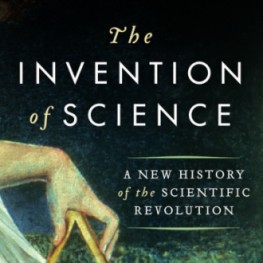We live in a world made by science. How and when did this happen? The Invention of Science tells the story of the extraordinary intellectual and cultural revolution that gave birth to modern science, and mounts a major challenge to the prevailing orthodoxy of its history.
Before 1492, all significant knowledge was believed to be already available; there was no concept of progress, as people looked to the past, not the future, for understanding. David Wootton argues that the discovery of America demonstrated that new knowledge was possible: indeed, it introduced the very concept of discovery and opened the way to the invention of science.
The first crucial discovery was Tycho Brahe’s nova of 1572: proof that there could be change in the heavens. The invention of the telescope in 1608 rendered the old astronomy obsolete. Evangelista Torricelli’s experiment with the vacuum in 1643 led directly to the triumph of the experimental method in the Royal Society of Robert Boyle and Isaac Newton. By 1750, Newtonianism was being celebrated throughout Europe.
This new science did not consist simply of new discoveries or methods. It relied on a new understanding of what knowledge may be, and with this came a fresh language: discovery, progress, fact, experiment,hypothesis, theory, laws of nature. Although almost all these terms existed before 1492, their meanings were radically transformed, and they became tools to think scientifically. Now we all speak this language of science that was invented during the Scientific Revolution.
This revolution had its martyrs (Bruno, Galileo), its heroes (Kepler, Boyle), its propagandists (Voltaire, Diderot), and its patient laborers (Gilbert, Hooke). The new culture led to a new rationalism, killing off alchemy, astrology, and the belief in witchcraft. It also led to the invention of the steam engine and to the first Industrial Revolution. Wootton’s landmark work changes our understanding of how this great transformation came about, and of what science is.



